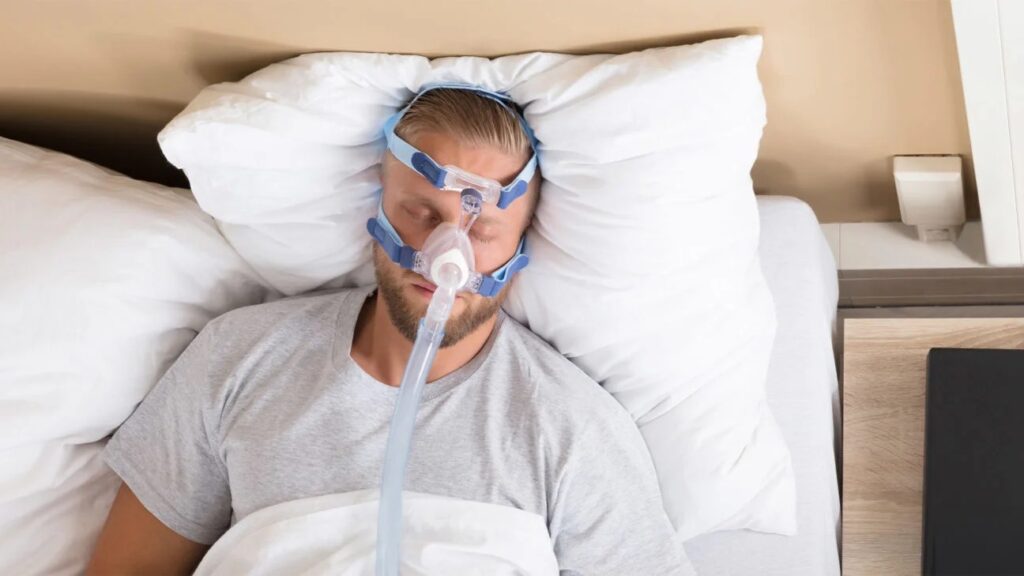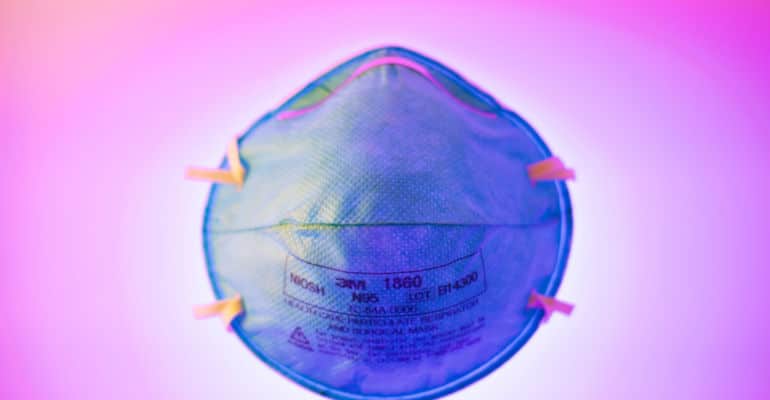Sleep apnea is a common yet serious sleep disorder that affects millions of people worldwide. Individuals with sleep apnea experience brief interruptions in their breathing while asleep, which can lead to fragmented sleep, reduced oxygen levels, and various health problems. One of the most effective treatments for sleep apnea is the CPAP machine, a device designed to help individuals breathe normally during sleep. But how does a CPAP machine work, and what benefits can it offer for people suffering from this condition? In this article, we’ll explore the different aspects of CPAP machines, their uses, and how they can improve the quality of life for those with sleep apnea.
What is a CPAP Machine?
A CPAP machine (Continuous Positive Airway Pressure machine) is a medical device used to treat sleep apnea by delivering a steady stream of air through a mask that keeps the airway open during sleep. CPAP units are often prescribed to people with obstructive sleep apnea (OSA), the most common type of sleep apnea. OSA occurs when the muscles at the back of the throat relax excessively, blocking the airway and preventing airflow, leading to frequent pauses in breathing throughout the night.
The CPAP machine works by providing a continuous flow of air that prevents airway collapse, ensuring that the person can breathe easily while sleeping. This stream of air is delivered through a mask that fits snugly over the nose and sometimes the mouth, ensuring a clear airway and eliminating the disruptive pauses in breathing that characterize sleep apnea.
What Does a CPAP Machine Do?
A CPAP sleep machine does more than just keep your airway open. It provides continuous positive pressure to ensure that your breathing remains steady throughout the night. By maintaining this constant airflow, the sleep apnea machine prevents the airway from collapsing, which is a common occurrence for those with obstructive sleep apnea.
- Maintains Airway Patency: The most important function of the CPAP unit is to prevent airway collapse, which is the main cause of sleep apnea-related breathing interruptions.
- Improves Sleep Quality: By keeping the airway open, the CPAP machine allows for uninterrupted sleep, which leads to deeper, more restorative sleep cycles.
- Reduces Apnea Episodes: One of the key benefits of CPAP machines is that they significantly reduce the number of apnea episodes, allowing the user to breathe normally while they sleep.
- Restores Oxygen Levels: By ensuring consistent airflow, the sleep apnea machine helps to restore normal oxygen levels in the blood, reducing the risk of related health issues such as heart disease, hypertension, and stroke.
How Does a CPAP Machine Work?
A CPAP machine typically consists of a few main components:
- The CPAP Unit: This is the base device, which generates the airflow. The unit is powered either by a plug-in cord or, in some cases, a rechargeable battery.
- The Air Tube: This flexible tube connects the CPAP unit to the mask and carries the air.
- The Mask: The mask is worn over the nose, or the nose and mouth, depending on the model, and delivers the airflow from the machine to your airway.
The machine works by pulling air from the room, passing it through a filter to ensure it’s clean, and then pushing the air through the tube to the mask. The mask’s seal ensures that the air pressure is maintained and keeps the airway open while you sleep.
Types of CPAP Machines
There are different types of CPAP machines available, each designed for specific needs:
- Standard CPAP Machine: The most common type, which delivers a constant pressure level throughout the night.
- Auto-CPAP Machine (APAP): This machine adjusts the air pressure automatically based on the user’s breathing patterns. It can increase or decrease pressure throughout the night to ensure optimal airflow.
- Bi-Level PAP (BiPAP): Unlike standard CPAP machines, BiPAP devices deliver two levels of pressure – a higher pressure for inhalation and a lower pressure for exhalation. This can be beneficial for people with more complex breathing issues or other respiratory conditions.
The Importance of Using a CPAP Machine for Sleep Apnea
Sleep apnea is more than just a nuisance; it can lead to serious long-term health problems. By using a sleep apnea machine, people can reduce their risk of complications such as:
- Heart Disease: Frequent interruptions in breathing can strain the cardiovascular system, increasing the risk of heart problems.
- High Blood Pressure: Sleep apnea often leads to high blood pressure (hypertension) due to the strain on the body caused by repeated drops in oxygen levels during the night.
- Stroke: People with untreated sleep apnea are at an increased risk of stroke due to the effects of oxygen deprivation on the brain.
- Daytime Fatigue: People with untreated sleep apnea often experience excessive daytime sleepiness and fatigue due to poor-quality sleep, which can impact work performance, mood, and overall quality of life.
Using a CPAP sleep machine can significantly improve the quality of sleep, reduce the risks of related health problems, and enhance overall well-being.
Benefits of CPAP Machines for Sleep Apnea
- Improved Sleep Quality: The primary benefit of CPAP machines is that they promote continuous, uninterrupted sleep. By preventing apneas, the sleep apnea machine allows for deeper and more restorative sleep cycles.
- Reduced Snoring: For many individuals with sleep apnea, snoring is a common symptom. The CPAP unit helps reduce or eliminate snoring by keeping the airway open and preventing blockages that cause snoring sounds.
- Better Oxygen Levels: Consistent airflow provided by the CPAP machine ensures that oxygen levels remain normal throughout the night, reducing the risk of hypoxia (low oxygen levels) and the associated complications.
- Increased Energy and Alertness: By improving sleep quality, CPAP machines help people feel more energized and alert during the day, which can improve productivity and mood.
- Reduced Risk of Serious Health Problems: By addressing the root cause of sleep apnea, CPAP machines can reduce the risk of heart disease, stroke, and high blood pressure.
Potential Challenges of Using a CPAP Machine
While CPAP machines are highly effective, some users may experience challenges when starting treatment:
- Mask Discomfort: The mask may cause discomfort or skin irritation for some users. It’s important to find a mask that fits well and is comfortable.
- Dry Mouth or Throat: Some users experience dry mouth or throat due to the airflow from the machine. Using a humidifier in conjunction with the CPAP machine can help alleviate this issue.
- Difficulty Adjusting to the Mask: Some individuals may initially struggle with wearing the mask while sleeping, particularly if they are not accustomed to having something covering their face during the night.
What to Expect When Starting CPAP Therapy
When you begin using a CPAP machine, it’s important to be patient as your body adjusts to the therapy. It may take a few weeks to get used to wearing the mask and sleeping with the machine. Regular follow-ups with your healthcare provider can help ensure that your CPAP unit is set to the correct pressure and that the therapy is effective.
It’s also essential to maintain the CPAP machine properly by cleaning the mask, tubing, and filters regularly to avoid the buildup of bacteria and mold, which could lead to respiratory issues.
Conclusion: A Powerful Tool for Managing Sleep Apnea
A CPAP machine is an effective and life-changing treatment for people with sleep apnea. By delivering continuous airflow through a mask, the sleep apnea machine helps prevent airway collapse, ensuring consistent breathing during sleep. Whether you’re using a standard CPAP machine or a more advanced model like a BiPAP, the benefits are clear: better sleep quality, improved oxygen levels, and reduced risks of serious health conditions. While adjusting to the machine may take time, the long-term health benefits make it a worthwhile investment for anyone suffering from sleep apnea.



